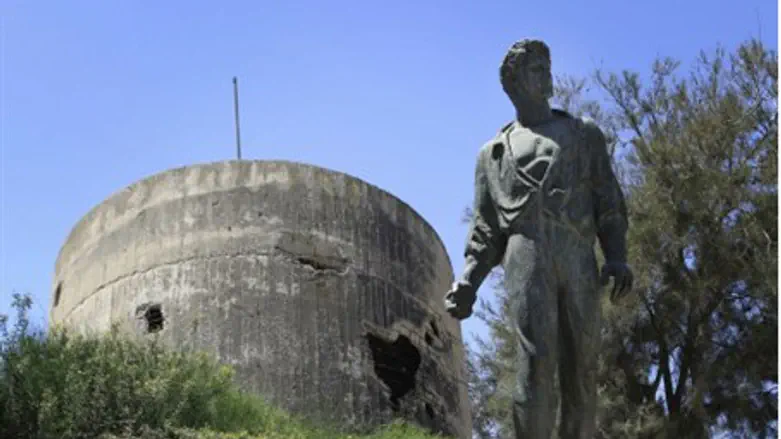
The young Jews who rose up against Nazi Germany "wanted to save human dignity", a Polish underground activist said Thursday, on the eve of the 70th anniversary of the Warsaw ghetto uprising.
Around 100 people were gathered at the Nozyk synagogue to pay tribute to the hundreds of poorly-armed Jews who took a stand against their occupiers in Europe's first urban anti-Nazi revolt, AFP reported.
"They didn't want to save themselves," said Wladyslaw Bartoszewski, a resistance fighter, death camp survivor and ex-foreign minister.
"They wanted to save human dignity, of every person, of Jews," he said at the prayer service at Warsaw's only synagogue to survive the war and which was spared only because the Nazis used it as their warehouse and stable.
Warsaw's city council earlier recalled the doomed revolt as "a desperate act of choosing a dignified death with arms in hand as well as a chance to take revenge on the oppressors."
Around 7,000 Jews died in the month-long uprising, most of them burned alive, and more than 50,000 were sent to the Treblinka death camp.
Several dozen, however, managed to survive by escaping through the drain system, helped along by Polish sewer workers who showed them the way.
On Thursday, 89-year-old Simcha "Kazik" Rotem revisited the sewer hole on Prosta Street through which he and his comrades crawled out, part of an unveiling ceremony of a plaque dedicated to the workers.
Rotem flew in from his home in Jerusalem for the anniversary of a revolt he did not expect to survive, given the power of the Nazi German war machine.
"Because what is a pistol or a rifle or a grenade when faced with the German army that conquered all of Europe?" Rotem told AFP Wednesday at the opening of a Holocaust-themed art exhibition.
For him the decision to rise up was a choice of a "nicer, more decent death than at the gas chambers,” he said.
Poland's chief rabbi Michael Schudrich said the 70th anniversary was special not only for the round number but precisely because "we still have among us those who actually fought.”
"There's a sense that we have an obligation to make sure we really remember to pay tribute now while we still can hear from (the fighters) and so we can thank them for what they did," he told AFP Thursday.
Poland has planned a host of events around the anniversary, including a midnight concert at the Monument to the Ghetto Heroes and an official ceremony with European leaders Friday.
On Wednesday, Poland's parliament paid tribute to the fighters of the Warsaw ghetto uprising. Parliament Speaker Ewa Kopacz remembered the hundreds Jews who rose up against the Nazis, saying their "heroism and sacrifice deserves our respect and admiration.”
Facing the memorial is a new museum which opens Friday to celebrate the rich 1,000-year heritage of Polish Jews, a presence broken by the Holocaust.
On Sunday, Rabbi Schudrich unveiled a special prayer case at the Jewish museum. The Mezuzah, affixed to the right of the entrance as tradition calls, was made from a brick taken from building foundations at the site of the wartime Jewish ghetto.
